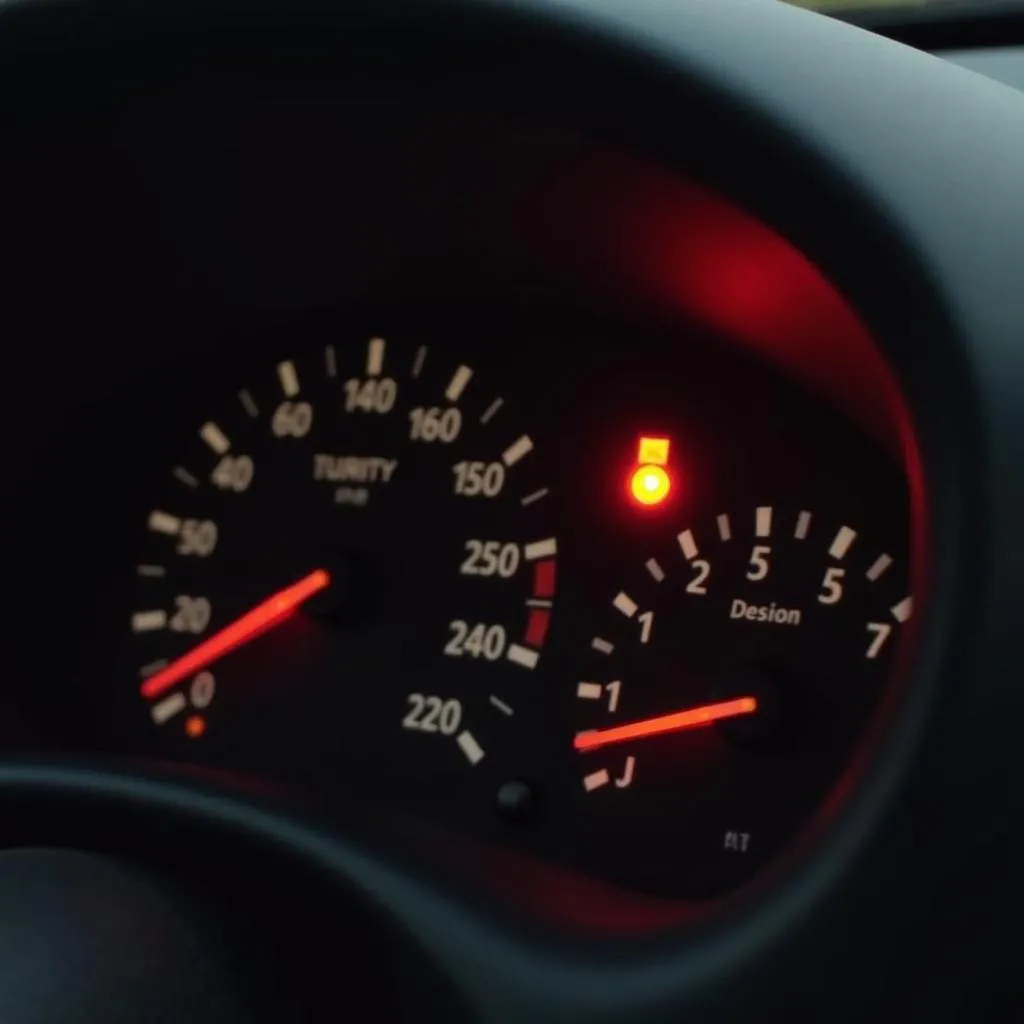Hearing a strange, often alarming sound coming from your car’s brakes is a jarring experience. While not all noises indicate a serious problem, a “disc brake warning sound” should never be ignored. This article dives deep into the potential causes of these unsettling sounds, how to diagnose them, and the steps you can take to restore silence and safety to your drive.
What Does a Disc Brake Warning Sound Mean?
A disc brake warning sound can manifest in several ways, from a high-pitched squeal to a grinding metal-on-metal scraping. Each sound often points to a specific issue within the braking system. Ignoring these auditory cues can lead to decreased braking performance and potentially dangerous driving conditions.
Common Causes of Disc Brake Warning Sounds
Understanding the source of the sound is crucial for effective diagnosis and repair. Here are some of the most common culprits behind disc brake warning sounds:
1. Worn Brake Pads
This is the most frequent cause of brake noise. Brake pads are designed to wear down over time, and as they reach the end of their lifespan, a small metal indicator tab will contact the brake rotor, creating a high-pitched squealing sound.
Expert Insight: “Many modern vehicles are equipped with brake pad wear sensors that trigger a warning light on the dashboard. However, don’t solely rely on this. If you hear any unusual noises, it’s best to have your brakes inspected.” – David Miller, Automotive Engineer
2. Glazed Brake Rotors
Brake rotors can become smooth and shiny, or “glazed,” due to excessive heat caused by hard braking or riding the brakes. This glazed surface reduces friction between the pads and rotors, leading to a squealing sound, especially noticeable at lower speeds.
3. Dirty or Contaminated Brake Pads
Dirt, debris, grease, or brake fluid can find their way onto your brake pads and rotors. This contamination interferes with the friction needed for optimal braking, potentially causing squealing, grinding, or even a chattering sound during braking.
4. Loose Brake Hardware
Caliper bolts, caliper pins, and other brake hardware components can become loose over time due to vibrations. Loose components can allow the brake pads to vibrate and rattle, creating a variety of noises, from clunking to squeaking.
5. Warped Brake Rotors
Excessive heat can cause brake rotors to warp, resulting in an uneven surface. When you apply the brakes, the pads make inconsistent contact with the warped rotor, leading to a pulsating sensation in the brake pedal and a grinding or scraping sound.
6. Cheap or Low-Quality Brake Pads
Not all brake pads are created equal. Lower-quality pads may use cheaper materials that are prone to noise and wear unevenly, leading to premature wear and a higher likelihood of squealing.
How to Diagnose Disc Brake Warning Sounds
While this article provides insights into common causes, diagnosing the exact problem requires a closer look. Consider these steps:
- Listen carefully: Pay attention to the type of sound, when it occurs (e.g., while braking, at low speeds, etc.), and its frequency.
- Inspect your brakes: If safe to do so, visually inspect your brake pads for wear, rotor condition, and signs of contamination.
- Consult a professional: If you’re unsure about the diagnosis or severity of the issue, it’s always best to consult a qualified mechanic.
Remote Diagnostics and Repair Solutions
In today’s technologically advanced world, remote diagnostic and repair solutions are becoming increasingly common.
Did you know? Modern vehicles with advanced onboard diagnostics can transmit real-time data to certified technicians, enabling remote diagnosis of brake issues and other vehicle problems. This remote access allows for quicker assessment, potential software updates, and guidance on necessary repairs, saving you time and potentially costly trips to the mechanic.
For specific issues like a persistent brake pad warning light, you can find helpful guides on resetting the warning light on our website, such as this one for Mini R50 brake warning light reset.
Conclusion
Disc brake warning sounds should never be taken lightly. They serve as a vital communication system between your vehicle and you, the driver. Understanding the potential causes and seeking timely diagnosis and repair will not only restore the quiet confidence of your brakes but, more importantly, ensure your safety and the safety of others on the road.

